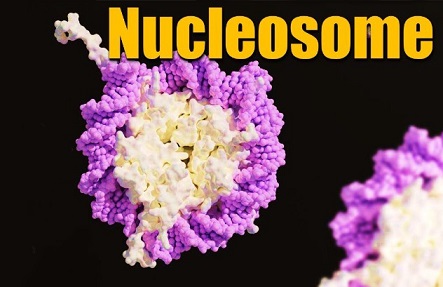Nikhil Prasad Fact checked by:Thailand Medical News Team Jun 24, 2024 10 months, 5 hours, 55 minutes ago
Sepsis is a life-threatening condition that affects millions of people worldwide, leading to severe complications and high mortality rates. Despite numerous advancements in medical science, diagnosing and predicting the outcomes of sepsis remain challenging. Recent research by researchers from Université Libre de Bruxelles-Belgium, IRCCS Humanitas Research Hospital-Italy and Tianjin Medical University General Hospital-China highlights the potential of circulating nucleosomes as a novel biomarker for sepsis. This
Sepsis Updates news report delves into the findings of a comprehensive review exploring the role of nucleosomes in diagnosing, predicting, and managing sepsis.
 Nucleosomes- A New Biomarker For Sepsis
What Are Nucleosomes?
Nucleosomes- A New Biomarker For Sepsis
What Are Nucleosomes?
Nucleosomes are fundamental units of chromatin, consisting of DNA wrapped around histone proteins. These structures play a crucial role in regulating gene expression and maintaining the integrity of our genetic material. Under normal conditions, nucleosomes are confined within the nucleus of cells. However, during cellular damage or death, nucleosomes are released into the bloodstream.
Nucleosomes and Sepsis: The Connection
Sepsis triggers an intense immune response, often leading to widespread inflammation and cellular damage. This process causes the release of nucleosomes into the bloodstream. Elevated levels of circulating nucleosomes have been observed in patients with sepsis, making them a potential biomarker for the condition.
The Study: Exploring the Potential
A recent scoping review analyzed 19 studies involving nearly 1,700 participants, including sepsis patients, healthy volunteers, and other ICU patients. The primary method used for measuring nucleosome levels was the enzyme-linked immunosorbent assay (ELISA). The review aimed to determine whether nucleosome levels could serve as reliable markers for diagnosing sepsis, assessing disease severity, and predicting patient outcomes.
Key Findings
-Diagnostic Potential: Studies consistently reported higher nucleosome levels in sepsis patients compared to healthy individuals. This suggests that nucleosome levels could help distinguish sepsis from other conditions, although their diagnostic accuracy varied.
-Correlation with Disease Severity: Higher nucleosome levels were associated with increased severity of sepsis, as indicated by established scoring systems like SOFA and APACHE II. Patients with more severe sepsis had significantly higher nucleosome levels.
-Prognostic Value: Non-survivors of sepsis had higher nucleosome levels than survivors, indicating that these levels could predict patient outcomes. This finding suggests that nucleosome measurements might help identify patients at higher risk of poor outcomes.
-NETosis and Nucleosomes: The release of nucleosomes during sepsis is often linked to a process called NETosis, where n
eutrophils release their DNA to trap and kill pathogens. The review found a strong correlation between nucleosome levels and other markers of NETosis, reinforcing the idea that nucleosomes reflect underlying immune processes in sepsis.
Challenges and Limitations
While the findings are promising, several challenges remain. The studies included in the review were mostly single-center and observational, with small sample sizes. Different methods and kits used to measure nucleosome levels also contributed to variability in results. Larger, multicenter studies with standardized measurement techniques are needed to confirm these findings.
Future Directions
Despite these challenges, the potential of nucleosomes as biomarkers for sepsis is clear. Future research should focus on large-scale clinical trials to validate the diagnostic and prognostic utility of nucleosome levels. Additionally, exploring the role of nucleosomes in guiding sepsis therapy could open new avenues for personalized treatment strategies.
Conclusion
Circulating nucleosome levels show great promise as biomarkers for sepsis, offering insights into the disease's diagnosis, severity, and prognosis. While more research is needed, these findings could pave the way for better management and outcomes for sepsis patients in the future. As science continues to unravel the mysteries of sepsis, nucleosomes may hold the key to unlocking new diagnostic and therapeutic possibilities.
Takeaway
Understanding and managing sepsis remains a significant challenge in modern medicine. The discovery of nucleosomes as potential biomarkers provides a glimmer of hope for improving sepsis diagnosis and treatment. With further research and validation, nucleosome levels could become an integral part of sepsis care, ultimately saving lives and enhancing patient outcomes.
The study findings were published in the peer reviewed journal: Biomedicines.
https://www.mdpi.com/2227-9059/12/7/1385
For the latest
Sepsis Updates, keep on logging to Thailand Medical News.
Read Also:
https://www.thailandmedical.news/news/viral-sepsis-and-macrophage-activation-syndrome
https://www.thailandmedical.news/news/phytochemical-from-marine-fungus-yields-promising-sepsis-treatment
